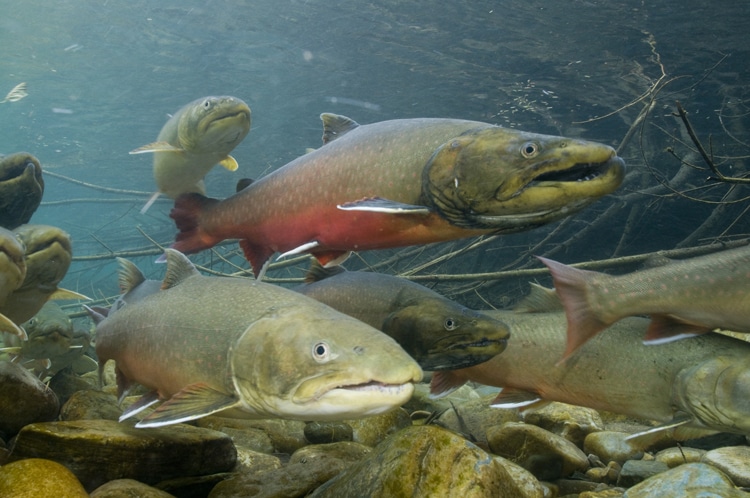Threatened bull trout in Oregon are not being adequately protected by federal agencies
Bull trout in Oregon are not being adequately protected from toxic pollutants by federal agencies an environmental organization asserted in a lawsuit filed today. Northwest Environmental Advocates (NWEA) filed the suit in federal court against the U.S. Environmental Protection Agency (EPA) and the U.S. Fish and Wildlife Service (FWS) late Friday.
“It’s the federal government’s job to make sure that Oregon doesn’t push threatened and endangered species over the brink into extinction, a job they failed to do,” said Nina Bell, NWEA Executive Director. “This lawsuit challenges the legitimacy of a formal opinion issued by the Fish and Wildlife Service in 2012 that found Oregon’s water quality standards for certain toxics were adequate to protect bull trout under the Endangered Species Act,” she said. Bull trout were identified as a threatened species under the Endangered Species Act in 1999.

NWEA alleges that FWS’ review of Oregon’s standards ignored the best available science on the impacts of toxic pollution on bull trout migration, spawning, and foraging. Bell noted, “These federal agencies very obviously flunked the test because they looked at the same science and came to opposite conclusions.”
According to Jamie Saul, clinical professor and staff attorney at Earthrise Law Center, which filed the case on behalf of NWEA, “The Fish and Wildlife Service failed to use the best available science when it determined that Oregon’s revised water quality standards for toxic arsenic, selenium, and zinc would not jeopardize threatened bull trout. This iconic species is especially vulnerable to toxic pollution, and federal law requires that agencies do all they can to ensure its survival.”
A determination by FWS that state standards are not protective results in EPA’s having to make changes to the standards. In Idaho, FWS concluded that eight standards for toxics jeopardize bull trout whereas in Oregon, FWS concluded that none of the standards posed a hazard.
The newly-filed lawsuit by NWEA is the latest in a long string of cases it has brought in an effort to strengthen Oregon’s water quality standards for toxic pollutants. NWEA brought suit in 2006 to force EPA action on Oregon’s revised standards; in 2010 to force completion of the review by the expert fish and wildlife agencies that’s at the heart of the new case, and in 2015 to force EPA action after the review was completed. Water quality standards establish the allowable level of pollution in state waters.
NWEA is represented by Jamie Saul, Lia Comerford, and Allison LaPlante of the Earthrise Law Center at Lewis and Clark Law School
Photos courtesy of USFWS Pacific

